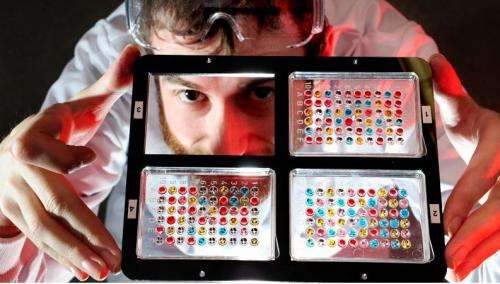Artificial liver to replace animal testing, potential to accelerate development of new drugs

Scientists at Heriot-Watt University are working towards creating the world's first artificial human livers for drug testing to drastically cut the number of live animals used and get life-saving medicines into the clinic faster.
Dr Will Shu is leading the Heriot-Watt University team in the £100,000 project. Working closely with Roslin Cellab, the team aims to demonstrate how an artificial liver, created using human cells, could become a new testing platform for drug discovery and development.
The team is working towards creating miniature human liver tissues and, eventually, 'livers-on-a-chip', using novel technology that will 'print' the cells in 3D onto testing surfaces.
Dr Will Shu said, "If we are able to advance this technique, the medical benefits could be enormous."
Testing new drugs currently requires large numbers of experimental animals. This work is expensive, time-consuming and is often inconclusive since drugs that pass animal testing usually fail during the even more expensive clinical stages of development, when the first human subjects are used.
Dr Jason King of Roslin Cellab said, "If successful, this technology will enable drug developers to test using human organ models at a much earlier stage. It should highlight drug failures well before they reach the clinic and help target resources towards the most promising new drug candidates."
There is growing interest in the cell-printing technique from scientists internationally because 3D cells, such as those being developed by Dr Shu's team, outperform cells grown in 2D cultures, which until now have been the standard in the drug development sector.
The research is currently funded by the Scottish Universities Physics Alliance (SUPA) INSPIRE programme.
Roslin Cellab is a Roslin Foundation company that offers contract research and is now using human cells to develop liver models for pre-clinical testing.


















